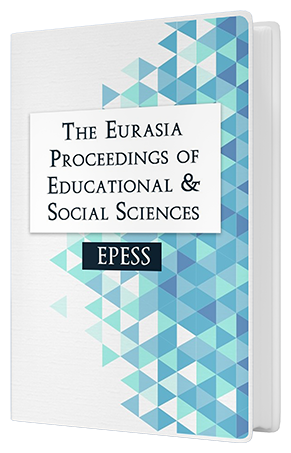Value Relevance and Integrated Reporting Sustainability Approach: Evidence from Listed Non-Financial Companies in Australia
Keywords:
Integrated reporting, Value performance, King III report, Australia companies.Abstract
The purpose of the study is to investigate the impact of Integrated Reporting on value performance of listed companies in Australia based on the adoption of the King III report. The study considers 38 non- financial companies for a period of time ranging from 2008 to 2020. The technique employed for analysis is sub- divided into three parts: firstly, the research compares the market valuation coefficients of summary accounting information over a three-year period before the adoption of IR (2008-2010) against the first three years (2011- 2013) after the mandatory IR adoption and then compares it with the current period (2014-2020) to ascertain any improvement, deterioration, similarities or differences in the IR adoption system. Secondly, a System GMM regression analysis was applied to ascertain the impact of IR on value relevance and sustainability on Australian listed companies. During the period of pre- adoption of the King III report, there were no significant relationship between book value of equity and equity and did not influence the value relevance of Australian markets since the King III report was not yet introduced in the accounting system of entities during that period. Secondly, during the period of adoption of the King III report, similar results were exhibited in terms of magnitude and direction during the pre- adoption of the report. BE and EAR are found to be negative and insignificant to value relevance. During the post- period of the implementation of the report, a downfall in the level of net assets and leverage was pointed out. Australian firms might employ internal financing to finance their operations and investments. The findings support evidence of (Marx and Mohammadali- Haji, 2014; Babourdakos, 2016). Further, Australian companies experienced risk disclosures, challenges and uncertainties that they might encounter in the future but also find new mitigation techniques to diminish them. Ultimately, a drop in the value relevance of net assets might be occurred by risk disclosures for instance credit risk or business risks. Regarding sustainability performance, during the adoption of King III report, there was no relationship between sustainability and market value information. Hence, theoretically speaking, it can be deduced that the principles regarding sustainability reporting were complex and unclear compared to financial reporting. However, the post adoption of King III stated that sustainability impacted positively on market value which explicated the variation in stock market prices and hence was value relevant in supporting the shareholders’ value-enhancing role of corporate sustainability (Ali & Jadoon, 2022). The unique of this study emanates from that both a contextual and methodological aspect employing the System GMM for conducting panel analysis.Downloads
Published
Issue
Section
License
Copyright (c) 2023 The Eurasia Proceedings of Educational and Social Sciences

This work is licensed under a Creative Commons Attribution-NonCommercial-ShareAlike 4.0 International License.
The articles may be used for research, teaching, and private study purposes. Any substantial or systematic reproduction, redistribution, reselling, loan, sub-licensing, systematic supply, or distribution in any form to anyone is expressly forbidden. Authors alone are responsible for the contents of their articles. The journal owns the copyright of the articles. The publisher shall not be liable for any loss, actions, claims, proceedings, demand, or costs or damages whatsoever or howsoever caused arising directly or indirectly in connection with or arising out of the use of the research material. All authors are requested to disclose any actual or potential conflict of interest including any financial, personal or other relationships with other people or organizations regarding the submitted work.




